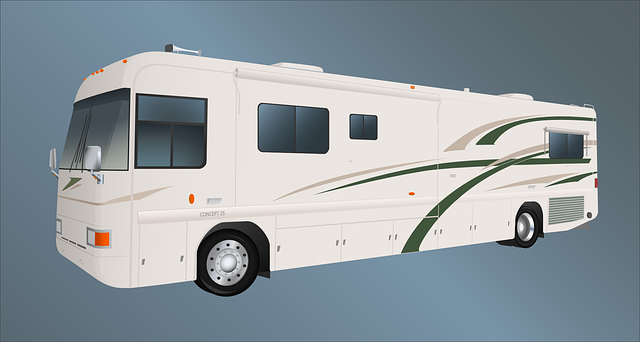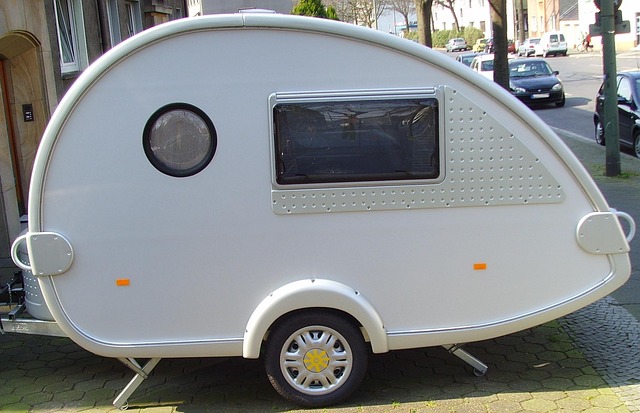During winter, RV batteries require special care to maintain their performance and lifespan due to the impact of cold temperatures on their function. Whether using lead-acid, AGM, or lithium batteries, it's crucial to insulate them to prevent freezing, which can impair their ability to hold a charge and lead to sulfation. Keeping the batteries above freezing with thermal blankets, heaters, or by placing them in heated spaces is essential. Maintaining a full charge and monitoring water levels in lead-acid batteries are necessary to avoid damage from ice expansion. Using a charger with temperature compensation features helps prevent overcharging and strain, ensuring optimal performance even in extreme cold. Regularly refilling and checking the electrolyte levels, as well as using sunlight to the battery's advantage, are also important for lead-acid batteries. RV owners should take these precautions to ensure their batteries remain reliable and functional throughout the winter months, ready for use when the warmer season returns.
When the mercury dips and winter’s chill sets in, RVers face unique challenges maintaining their mobile homes and, crucially, their batteries. An RV battery’s health during cold weather is not just about convenience—it’s about safety and longevity. This article delves into the importance of tailoring RV battery care to frigid conditions, offering insights on insulation, charger selection, and optimal storage to safeguard your power source against the freezing temperatures that can otherwise impair its performance. Understanding the intricacies of RV batteries in cold weather and implementing effective strategies will not only ensure your travels remain uninterrupted but also help you extend the life of your investment. Whether you’re using lead-acid or lithium RV batteries, knowledge is power—especially when that power is at risk of turning frosty.
- Understanding RV Batteries and Their Role in Cold Weather
- The Impact of Freezing Temperatures on Lead-Acid RV Batteries
- Strategies for Maintaining Lithium RV Batteries in Cold Conditions
- Why Temperature Control is Key for Your RV's Power Supply
- Insulating Your RV Battery to Prevent Frostbite and Energy Loss
- Choosing the Right Charger for Cold Weather RV Battery Care
- Optimal Storage Techniques for RV Batteries During Winter Months
- Proactive Maintenance: Extending the Lifespan of Your RV Battery in Cold Environments
Understanding RV Batteries and Their Role in Cold Weather

When the mercury dips and cold weather sets in, understanding how your RV batteries function becomes crucial for maintaining power supply. RV batteries, typically lead-acid or lithium-ion types, are the lifeline of your recreational vehicle’s electrical system. In cold conditions, these batteries can face significant challenges that affect their performance and longevity. To ensure your RV battery operates efficiently during winter months, it’s imperative to address factors such as temperature fluctuations, which can reduce the battery’s chemical reactions necessary for energy storage. For instance, lead-acid batteries can become sluggish in temperatures below freezing because their active materials are less conductive. Similarly, lithium-ion batteries also have optimal temperature ranges, and operating outside of these can impair their ability to hold a charge. Proper care and maintenance, which includes insulating the battery and possibly using a battery heater, can mitigate the effects of cold weather on your RV’s power source. This not only helps in starting up your RV after a chilly night but also ensures that all 12-volt systems within the vehicle function as intended, from lighting to refrigeration, maintaining comfort and safety for travelers braving the cooler climes. Understanding the sensitivity of RV batteries to cold weather is not just about convenience; it’s a practical necessity for safe and enjoyable RV trips in winter conditions.
The Impact of Freezing Temperatures on Lead-Acid RV Batteries

When temperatures dip below freezing, lead-acid RV batteries require special attention to maintain their functionality and longevity. The cold weather can significantly impact the battery’s ability to hold a charge. Water, which is an essential component of lead-acid battery electrolyte, can freeze and expand, potentially causing ruptures or cracks in the battery case if not properly maintained. This physical damage can impair the battery’s performance and shorten its lifespan. The chemical reactions within the battery that enable energy storage are also sluggish in cold conditions, reducing the efficiency of the battery and making it less capable of supplying the necessary power for RV appliances and electronics. To mitigate these effects, it’s crucial to insulate the battery with appropriate materials designed for low temperatures, such as thermally reflective blankets or foam-insulated battery boxes. Additionally, keeping the battery charged at a moderate level during cold spells can prevent the water in the electrolyte from freezing and damaging the internal structure. Regular maintenance and understanding the vulnerabilities of lead-acid batteries to cold weather are key to ensuring they remain reliable power sources for RV enthusiasts throughout the year.
Strategies for Maintaining Lithium RV Batteries in Cold Conditions

When temperatures dip, lithium RV batteries require specialized care to ensure their longevity and performance. The cold can affect battery voltage and capacity; therefore, it’s crucial to implement strategies that protect these power sources from the rigors of winter. Firstly, storing your RV in a temperature-controlled environment is ideal to prevent freezing. If this isn’t feasible, consider using a battery insulation kit designed for lithium batteries. These kits help retain heat and can be supplemented with a heated blanket or similar device set on a low setting to keep the battery within its optimal range without causing damage from overheating.
Regularly monitor the battery’s state of charge and keep it above 50% when temperatures are below freezing. A full lithium battery is more susceptible to the cold, which can lead to reduced capacity and potential damage. Charging the battery slightly can help maintain its internal temperature. Additionally, opt for a charging system with a battery thermistor that automatically adjusts the charge rate based on the battery temperature, ensuring it remains at an ideal level for operation in cold weather conditions. By taking these precautions, you can safeguard your lithium RV battery from the adverse effects of cold weather and maintain its ability to provide reliable power for all your RV adventures.
Why Temperature Control is Key for Your RV's Power Supply

Maintaining a consistent temperature is paramount for RV battery health, particularly in cold weather conditions. Cold temperatures can significantly impact the performance and lifespan of an RV battery, known as deep-cycle batteries. These batteries are designed to handle frequent discharges and recharges, but when exposed to freezing temperatures, their ability to hold a charge diminishes. The chemical reactions within the battery cells slow down as they cool, which reduces the efficiency of the battery and can lead to sulfation—a process where sulfur crystals form on the lead plates, impairing the battery’s capacity to store energy. Keeping the batteries in an insulated compartment or using a battery heater can prevent them from freezing, ensuring they remain functional and reliable. Temperature control is not just about avoiding a complete freeze; it’s also about maintaining optimal performance. Even slight drops in temperature can affect the internal resistance of the battery, causing it to work harder and less efficiently. Therefore, RVers should monitor and manage the temperature of their RV batteries during cold weather to ensure they have a steady power supply for heating, lighting, and other essential functions, thus enhancing the overall safety and comfort while on the road. Regular maintenance and understanding the impact of temperature on your RV battery’s health are crucial steps in prolonging its lifespan and ensuring it performs when you need it most.
Insulating Your RV Battery to Prevent Frostbite and Energy Loss

Protecting your RV batteries from cold weather is crucial for their longevity and performance, especially in frost-prone regions. During the winter months, temperatures can drop significantly, leading to a reduction in battery voltage and capacity. This is because the chemical reactions within lead-acid or other traditional RV batteries slow down as they approach their freezing point, which is around 32 degrees Fahrenheit (0 degrees Celsius). When batteries freeze, their internal components can sustain damage, potentially causing shortened lifespans or even complete failure. To prevent frostbite and energy loss, it’s essential to insulate your RV battery adequately.
Insulation materials such as thermal blankets or specially designed battery insulation covers can help retain the heat generated by the battery’s self-heating processes. These insulating solutions should be fitted snugly around the battery, ensuring no parts are exposed to the cold air. Additionally, it’s advisable to bring the battery into a heated space during extremely cold weather if possible. For lithium batteries, which are less susceptible to freezing damage but still experience reduced efficiency in cold conditions, proper insulation can enhance their performance and ensure they operate at peak efficiency when you’re ready to hit the road again. Regular maintenance and monitoring of battery temperatures with a thermometer will further help you address any potential issues promptly, safeguarding your RV batteries against the ravages of winter.
Choosing the Right Charger for Cold Weather RV Battery Care

When temperatures plummet, ensuring that your RV battery remains functional is crucial for maintaining power in your recreational vehicle. Cold weather can significantly impact the performance of lead-acid or AGM batteries, often leading to a decrease in their ability to hold a charge. Choosing the right charger tailored for cold conditions is essential for RV battery care during these months. Opt for a charger designed with temperature compensation features that prevent overcharging and minimize battery strain when the mercury drops. These advanced chargers can detect the actual temperature of the battery environment and adjust charging parameters accordingly, which not only extends the life of the battery but also ensures it operates at peak efficiency even in the harshest winter climates. Additionally, a charger with a high enough amperage rating to handle the cold-related reduced performance of your RV battery will ensure a steady charge, countering the sluggishness caused by the cold. By investing in a quality, cold-weather suitable charger, you safeguard your RV battery’s health and reliability throughout the colder seasons.
Optimal Storage Techniques for RV Batteries During Winter Months

When temperatures plummet, ensuring that your RV batteries remain in optimal condition is paramount for their longevity and performance. Cold weather can significantly impact battery life, leading to decreased voltage output and reduced capacity if proper care measures are not taken. To mitigate the effects of winter on RV batteries, it’s crucial to store them at a temperature above 32 degrees Fahrenheit (0 degrees Celsius) when possible. If your batteries must endure colder conditions, insulating them is essential. Use a quality battery blanket or heat source to maintain a safe operating temperature and protect against freeze-up. Additionally, keeping the batteries charged at a moderate level during storage can prevent sulfation, which occurs when batteries discharge fully and can impair their ability to hold a charge over time. Regularly checking and topping off the water levels in lead-acid batteries is also important, as the water can freeze and expand, potentially damaging the battery if it’s not adequately maintained. By implementing these storage techniques for your RV batteries during the winter months, you can ensure they remain reliable and ready for your next adventure when the warmer seasons return.
Proactive Maintenance: Extending the Lifespan of Your RV Battery in Cold Environments

During the cold weather months, ensuring your RV battery remains in optimal condition is paramount for uninterrupted power supply and longevity. Cold temperatures can significantly impact battery performance, leading to a reduction in battery capacity and increased sulfation if not properly managed. Proactive maintenance is key to extending the lifespan of your RV battery in cold environments. Firstly, it’s crucial to keep the battery fully charged; partial charges can lead to a freezing phenomenon known as “cold cranking,” which impairs battery function. Regular charging maintains optimal electrolyte levels, which in turn prevents corrosion and ensures a stable charge. Additionally, insulating the battery with a proper cover can mitigate the effects of cold weather. Ensure that the battery is installed in a location where it receives indirect sunlight during the day to benefit from the heat generated. Lastly, consider using a battery heater or an insulated battery box to maintain a consistent operating temperature within the recommended range for your RV battery type. These measures not only protect against the rigors of cold weather but also ensure that your RV battery remains reliable and ready for use, even in the most frigid conditions.
When the mercury dips, safeguarding your RV battery becomes paramount. As detailed throughout this article, cold weather poses unique challenges for RV batteries, with both lead-acid and lithium varieties requiring specific care to maintain their performance and longevity. By understanding the role of RV batteries in powering your mobile haven during the winter months and implementing targeted strategies like insulation, selecting appropriate chargers, and employing optimal storage techniques, you can protect your investment and ensure consistent energy supply. Proactive maintenance is not just a seasonal task; it’s an essential year-round commitment for RV enthusiasts. Remember to regularly check and care for your RV battery in cold weather to extend its life and reliability, ensuring your adventures are never hindered by the elements. With the right approach, your RV battery can continue to be a dependable source of power, keeping you and your loved ones warm and connected, no matter how low the thermometer reads.
